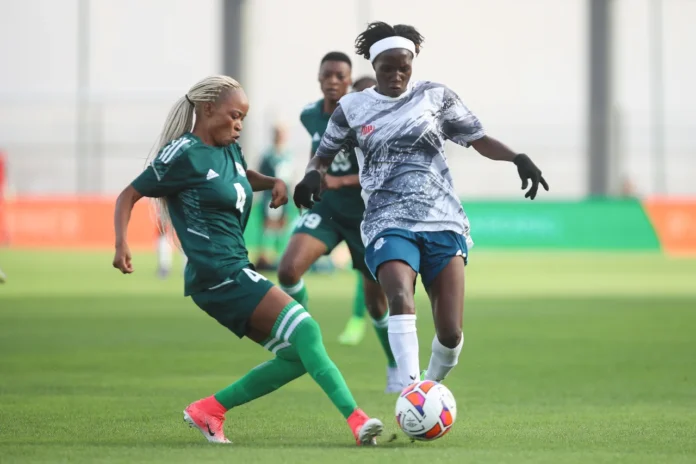A report from the Confederation of African Football (CAF) shows significant growth in women playing, coaching, and refereeing football. CAF plans to boost this growth with new funding, development and structural investments, starting from the grassroots level.
bird story agency
Women’s football in Africa is scoring new progress goals, with more female players, coaches and referees joining the game than ever before.
Confederation of African Football’s first Women’s Football Landscape report 2022 shows there are 150,653 registered female players, 4140 female coaches, and 4724 female referees under CAF.
With a record 47 out of 54 countries in the continent having women’s national teams, the traditionally male-dominated sport is growing to become an all-gender sport.
“We can see that great progress has been made in terms of development and participation with 47 MAs having a senior women’s national team,” said CAF Head of Women’s Football, Meskerem Tadesse Goshime.
With the majority of the stakeholders falling under 20 years bracket, there is no doubt more young women falling for the sport.
“The data show that these players are young, with more than 70% of them being under 20 years old. There is also a great improvement in our member associations in terms of the commitment of women’s U-20 and U-17 teams,” said Goshime.
The survey across 52 football associations revealed that most (71%) had implemented grassroots programs to cultivate budding talent. In a remarkable strategy, 82% of these associations have partnered with schools to provide young footballers with a nurturing platform to hone their skills.
This momentum is sustained as the youngsters grow into national leagues and competitions.
“A women’s top division competition is organized in 91% of CAF Member Associations,” the report reads in part.
Women footballers, coaches and referees have already made marks in the global football arena. Asisat Oshoala famously plays for the Spanish League club, Barcelona, as well as Nigeria’s national team, the Super Falcons and is a contender in the race for the coveted top scorer title in the Women’s Champions League, while Rwandese referee Salima Mukansanga became the first African female referee to preside over a men’s World Cup match, in Qatar last year.
National and club women’s teams from the continent have also competed at the top levels of world football with six of of the continent’s member associations under CAF represented in the eight editions of the FIFA Women’s World Cup competitions between 1991 and 2019.
Nigeria has made the most appearances, (8) Ghana (3), Cameroon (2), and Cote d’Ivoire, Equatorial Guinea and South Africa have one appearance each.
Of the nine editions of the Under 20 Women’s World Cup played between 2002 and 2018. Nigeria appeared in all nine, Ghana in five and DR Congo, in two. Nigeria finished in second place in 2010 and 2014 and 4th place in 2012.
CAF President Patrice Motsepe said the CAF 2021-2025 Action Plan significantly focuses on women’s football development.
Women-specific football programmes include the Women’s Champions League competition with a US$1.55 million prize, an increase of 100%. The second edition of the CAF Women’s Champions League was held in Morocco last November and won by the Moroccan club AS FAR.
The title prize for the Women’s African Cup of Nations has been increased by 150% to US$2.4 million.
180 000 girls participate in the African Schools Football Championship, while development programmes featuring football managers and administrators are also actively under implementation by CAF.
FIFA’s 2022 global transfer report showed Nigeria and Ghana among the ten countries making female football transfers in Africa.
bird story agency



